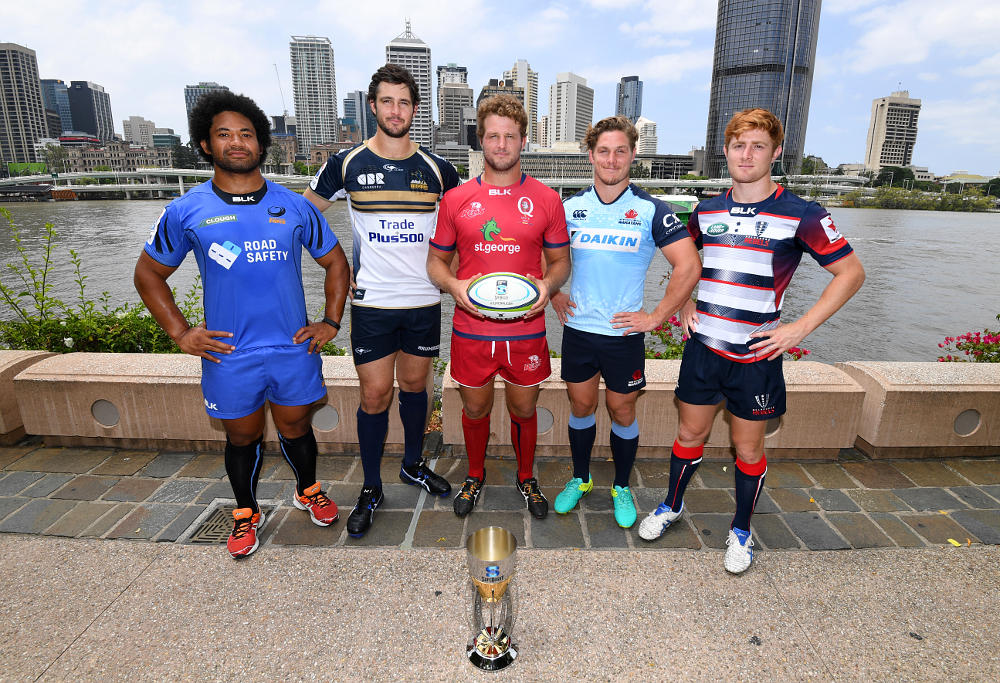The indecision on whether to maintain the current structure or grow the game further is suffocating Super Rugby followers.
A hallmark of sport is its ability to bring people together. Super Rugby’s backbone of success has been in its international flavour equally from South Africa, New Zealand, Australia, emerging players from the Pacific Islands and more recently Japan and Argentina.
It’s been refreshing reading everyone’s thoughts on the direction of Super Rugby this week and I think we can all agree on something, the current model is way too complicated. Put it this way, if you can’t explain how your competition works in less than three sentences; you’ve got yourself a problem.
At the time of writing I am sure the powers to be are finalising an outcome on the competitions direction.
Fundamentally, a trade off exists between competition quality versus the long-term growth of the game, domestically and abroad. The current model is way too complicated, keeping it simple works.
The answer [cue Old El Passo meme], ‘why don’t we have both’?
This is my idea, this is how it works – the benefits and risks in the short term.
A Super Rugby competition exists with the already established teams plus six extra teams located throughout the Americas and Asia-Pacific. A promotion and relegation systems exists between the top 12 and bottom 12, where the bottom/top three teams of each league are promoted and relegated each year.
A finals system takes place in the top division where the top four teams progress to a final series and an eventual champion is declared.
Newly established franchises are based in new regions that include North America (two franchises from the USA, one from Canada), a second Argentinian team, and Asia (Hong Kong and Singapore, alternatively a second Japanese franchise in Kyoto).
While many may perceive this as naïve, there are benefits to persevere with such a strategy. There would be question marks surrounding quality, travel, scheduling and the bottom line.
Rugby is becoming a more popular sport in these countries, and with the introduction of sevens in the Olympics, the game’s profile has significantly increased.
The USA is the largest sports market in the world. One thing Americans do really well is that they are sports-mad and fervent supporters of their teams in good and bad times.
Teams in say Palo Alto, Denver and Vancouver would capture interest in the local towns with corporate sponsors willing to get their names on a jersey. Even if you only captured 10 per cent of the public’s imagination, you could have security in in the game’s longevity.
America is the largest economy in the world and would attract a great deal of sponsorships to get the brand into time zones all over the world.
The same could be said also for franchises based in Hong Kong and Singapore. These are truly global cities with a large expatriate base; franchises would get some traction as there aren’t any other sports available.
If you were a global company (i.e. Banking/Healthcare/Telecommunications) you would gain exposure all throughout a South East Asian time zone which would raise your profile significantly (China is just next door too).
New teams, more games leads to more viewers and audiences where there is an appetite for sport. There would be an incentive to play for these franchises as well as you pay very little (anything at all) in tax. The highest tax bracket in Hong Kong and Singapore rests only at 15 per cent, that and you’re more than likely to be paid in US dollars – you would attract talent and people would want to play for you.
The risks involved is largely a significant drop in quality. This will be overcome in years while squads take time to develop. Support for the game in Canada and America is low compared to other major sports such as hockey and NFL but at least you would endeavour to gain some interest.
Even if the second tier competition was bad, at least it is still worth watching both teams throwing around a footy and having a close game; better that than seeing a team being blown off the park by 50 points every week.
There is a clear distinction in the competition as it stands now, every New Zealand team is outstanding, two South African and Australian teams are competitive, the rest are lagging behind.
Fulfilling this would also require that all southern hemisphere unions acted as a cartel. A law would have to be introduced where you weren’t allowed to play for your country unless you were playing in Super Rugby (or the NRC, ITM Cup, Currie Cup and Top League).
We have the luxury of the best emerging talent in the world. New Zealand has been a consistent production line of quality players, Western Sydney is a hot bed of talent where kids are being churned and pillaged by the NRL/AFL, players hailing from Tonga, Fiji and Samoa have long been lost to Europe, and there are hundreds of South Africans and Australians plying their trade in second tier competitions all over Italy and France.
These players could fill a void in new franchises, while it would also give an opportunity for players in the Americas to blood new talent in order to raise the standard of the game domestically and increase their competitiveness internationally.
In the proposed model you could incorporate teams from each existing conference to play each other at least once a year.
The shortening of the season would flow nicely into the global calendar from 2020 and would provide players with ample time to rest.
Personally, it has been disappointing to hear that Australian rugby fans are happy to see one of their teams let go, while the competitiveness is diluted. To me it seems short sighted to let 20 per cent of your emerging talent go to either overseas clubs or stuck on the reserves bench with zero game time. Perth, Canberra and Melbourne do have valid local competitions in place with a cult following and vocal support base.

Cutting a South African team would also be a sad sight. The initial endeavour of the Southern Kings was to emancipate people who felt hamstrung by their socioeconomic status.
It’s not my place to champion and discuss politics or social issues. Regardless if it were in Australia or South Africa, it would be a shame and a disappointment to see a franchise cut a drift and serve as a slap in the face to their loyal supporters.
This is really a divergent way of thinking and there are a lot of moving parts. But hey who wouldn’t say no to amalgamating all the best players from around the world and spicing up the game internationally?
What makes rugby such a niche sport is that it does embrace its amateur (tribal) roots where players from a certain province can express themselves in an interpretation of how they play the game.
To me rugby is the ultimate team sport where you can be the best player on the field and not even touch the ball.
The success of any competition is inherit on its simplicity. People are endeared to a representation of their team trying their best on their behalf.
Sloppy rugby in the meantime would have to do, but at least it’s worthwhile watching a bunch of boofheads picking up the ball and running with it.






























































































